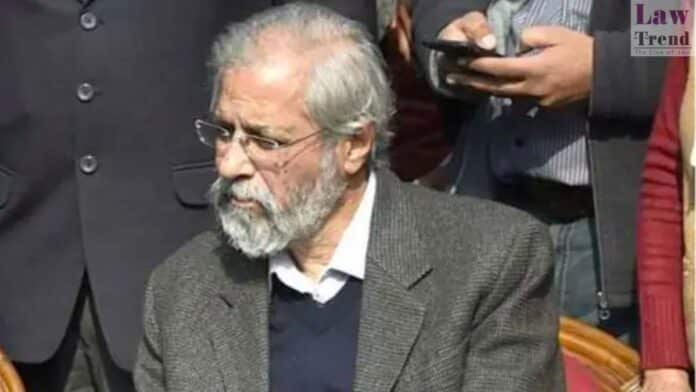Former Supreme Court judge Justice Madan B Lokur on Wednesday sounded a sharp warning over what he described as “considerable interference” by the executive in the judicial appointment process, cautioning that such involvement threatens the independence and integrity of the judiciary.
Speaking at an event hosted by The Global Jurists on the theme “Morality in Judiciary: A Paradigm or a Paradox,” Justice Lokur underscored deep concerns about the erosion of judicial independence, lack of transparency, and politically motivated appointments and transfers.
“There has been, I think, a considerable interference by the executive in the appointment process,” Justice Lokur said, highlighting irregularities and delays in appointments despite the existence of a Memorandum of Procedure (MoP) that was drafted in consultation with the government.
He stressed that judicial appointments were increasingly being influenced by factors other than merit. Referring to instances where deserving advocates were overlooked, he said, “You can appoint some person in the beginning, and a senior person can be kept pending for six or seven months so that he or she loses seniority — and this is what is happening.”
Justice Lokur called for a thorough deliberation to address the opacity in the appointment process — not only from the Supreme Court and High Court collegiums, but also from the government’s side.
Two Impeachment Motions Pending
In a significant disclosure, Justice Lokur pointed out that for the first time in India’s judicial history, two impeachment motions are currently pending — one against Justice Yashwant Varma in Parliament, and another against Justice Shekhar Yadav in the Rajya Sabha. He urged stronger vetting and oversight mechanisms to prevent such incidents.
“We must be very careful about the kind of persons we appoint, and keep a check on the judges while they are on the bench,” he asserted.
Criticism of Judicial Transfers and Post-Retirement Posts
Referring to politically sensitive transfers, Justice Lokur cited the case of Justice S Muralidhar’s transfer from the Delhi High Court during the 2020 riots. He claimed such moves appeared to be punitive and undermined judicial independence.
He also criticised the growing trend of judges accepting political or gubernatorial positions soon after retirement.
“We had a former Chief Justice of India rewarded with a Rajya Sabha seat, and two other retired judges appointed as Governors,” he noted, further expressing dismay over instances of sitting judges resigning to enter politics.
Clarity in Judgments and Judicial Language
Justice Lokur also emphasized the need for judicial decisions to be written in a manner understandable to litigants, lawyers, and even fellow judges. “I had to deal with judgments where the language was so complicated that no one could understand it — not even the judges,” he remarked.




